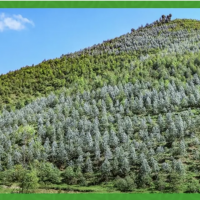Credit the Crocodile is a new book that deals with an unusual subject: international wildlife politics. That, in itself, is reason for animal rights groups, conservationists and economists to pay some attention.
As a novel set in modern-day South Africa, the story of Credit the Crocodile focuses on how Nile crocs were saved from possible extinction, when farmers were allowed to raise and harvest them. But the principal crocs in this story are particularly interesting because of their ability to understand English.
While the descendants of white Europeans may no longer rule black African countries, many Westerners in far away lands still exhibit a strong penchant to dictate how African wildlife is to be protected and preserved. As the story of Credit the crocodile unfolds, the author finds interesting ways to offer fresh ideas on a viable basis for wildlife conservation policies in the future.
The book is designed to open the eyes of adults through the fresh perceptions of their kids, particularly to the possibility of saving a species while maintaining a trade in its parts. The book raises a few questions: Does the world appreciate the reality that sustainable use of wildlife products, such as ivory or rhino horns, actually creates an incentive for conserving wildlife? How can we best communicate this message so that people begin to appreciate a different approach to conservation?
These are some of the basic questions that compelled Godfrey Harris to write the book. He wanted people worldwide to come to understand and not miss the opportunities of alternative and practical ways of saving wildlife within the context of an exciting and fun story.
Written creatively and compellingly, Credit the Crocodile is a must-read for anyone who values wildlife. It warns us against the continued and needless loss of African wildlife to poachers as is currently happening to rhinos and elephants in Southern Africa. One of the key lessons that I drew from the book and have also experienced through my 25-year interaction with poor African rural communities as an environmental journalist, is that the continued increase in elephant and rhino poaching in Africa lies not in stopping international trade in their products, but in allowing controlled trade in them. Without meaningful benefits from their wildlife, poor African rural communities are forced to consider wild animals as a nuisance. But with benefits that wildlife can bring to rural communities through sustainable use as the book is correctly suggesting, those who collaborate with poachers can stop. Instead, they would start supporting elephant and rhino conservation initiatives at both local and national levels. I strongly recommend Credit the Crocodile to anyone who has a desire to become involved in saving wildlife in Africa and worldwide.
By Emmanuel Koro
About the writer: Emmanuel Koro is a Johannesburg-based international award-winning environmental journalist who has written extensively on environment and development issues in Africa.
The Express News










